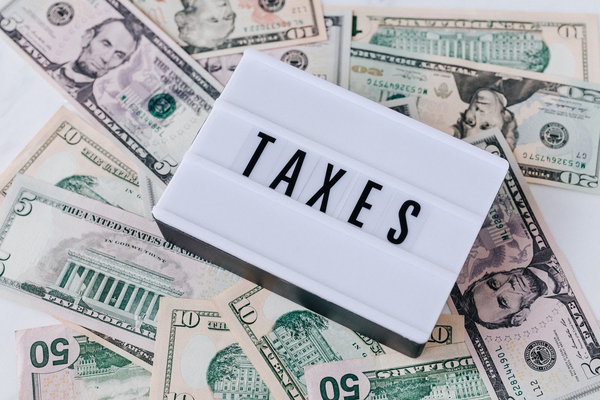Everybody agrees to the fact that taxes are complicated. Not to mention that changes in tax laws are also adding to the complications. The process becomes even more complicated when you are a freelancer because you do not have a finance or accounting team who can manage the withholding for you. Unfortunately for freelancers, it’s more than just filing their taxes. There are plenty of things that need to be kept in mind and should be included in the preparation process to ensure everything is covered well and eliminate your risks of paying penalties. Below are some tax management tips that freelancers like you would surely find helpful.

Learn about what deductibles you should file.
Never make the mistake of not declaring your tax deductions and benefits every tax season. A lot of freelancers do this because they are not familiar with what they should and should not deduct. This is the reason why a lot of freelancers should learn how to file taxes as an independent contractor. The survey reveals that more than 30 percent of freelancers are having difficulty understanding the accurate way to process taxes. Moreover, 73 percent of freelancers admit they do not deduct any of their expenses when filing their taxes. The truth is freelancers can deduct expenses relative to their home office. They have the option to write-off their expenses which may include house rent, utility bills, etc. But, make sure that the space you declare for home office deductions should be used primarily for work or business-related purposes only.
Keep in mind that each state/country has varying tax laws so the deductions you can avail of will depend on where you live. If you are currently working from Hong Kong, for instance, you can take advantage of Hong Kong’s tax deductions for businesses which may include expenses such as business travel, meals, telecommunications costs, and equipment. if you are having trouble with an individual tax return in Hong Kong, you should consult with an accountant or registered tax adviser. Some countries also have statutory tax deductions that you can claim if you meet certain criteria. So, remember to keep track of your income and expenses throughout the year for accurate tax filing.
Know exactly how much you should pay.
Before filing your taxes make sure you are aware of what and how much to pay. As a freelancer, you should be paying for your self-employment tax, which includes your Medicare taxes and Social Security. You also need to pay a self-employment tax to the state where you live and work as a freelancer. However, if you are living in a state where tax rates are as high as their skyscrapers then you should take into consideration this fact as well. For example, if you are living in New York City, expect to pay higher tax rates than those who live in other states that have lower tax rates.
Other factors that serve contributory to higher taxes that you need to pay to include being single, with high income, and no deductions. If you are not yet certain as to how much to prepare for your taxes, it is safe to earmark about 40 percent. If you are married, and not earning too high you may set aside about 30 percent, But, your taxes could amount to less than 30 percent if you are married, own your home, with several business expenses, and with children as dependents.
Opt for quarterly payment.
Ask for help from an accountant so you can make projections as to how much your taxes would be on an annual basis. This is a must especially if your net self-earnings amount to more than $400. You have to make the quarterly payment otherwise you will be paying penalties. Keep in mind that the IRS prefers to have your money quarterly much like when you are employed under a specific employer. The IRS does not allow anyone to make lump sum payments for their unpaid quarterly taxes at the end of the year. Don’t rely solely on making ballpark figures or else you would be making payments that are most likely way off.
Identify those expenses that you can write off.
Note that the IRS allows freelancers to make deductions on expenses that are deemed necessary and ordinary. These are the kinds of expenses that are considered ordinary in your chosen industry. For example, if you are working as a freelance model you will be spending a lot on makeup and cosmetics because these are considered essentials in your line of work. So, you can make deductions for these expenses because the IRS knows your work is all about making your physical appearance at its best.
Do not forget to monitor your expenses.
You should keep a record of your expenses. You may do this manually but it would be better if you do it digitally for faster and easier recording and tracking. But, you can always opt for whatever works best for you in terms of convenience. Just remember that paper receipts could easily fade in just a matter of days or weeks. Before you know it it’s already a blank sheet of paper, leaving you having difficulty declaring the total cost of your expenses. Unreadable receipts will not prove to be your best defense during an audit.
These tips should help you make your life easier in terms of filing taxes. If you think you do not have enough time to do all the work of filing your taxes it is best to hire an accountant who can help you cut through all of the complicated information about filing taxes for freelancers.
